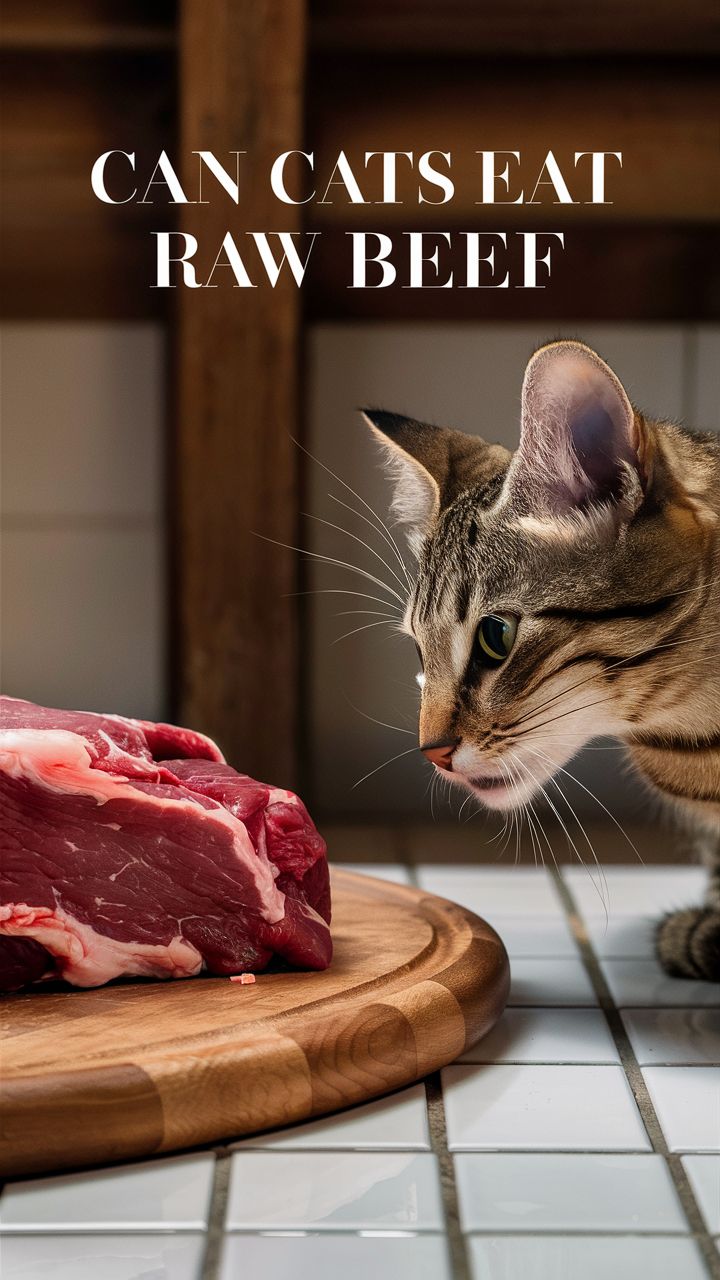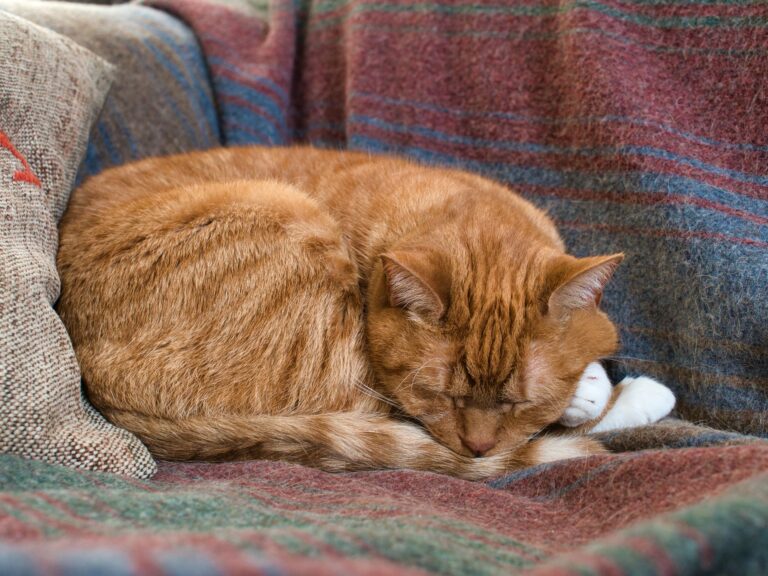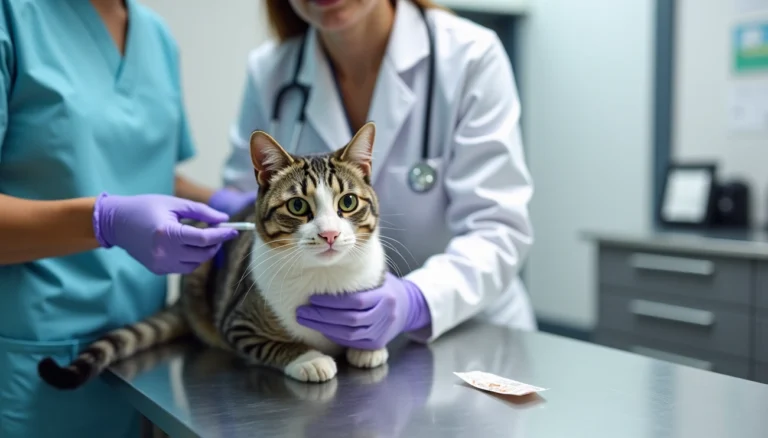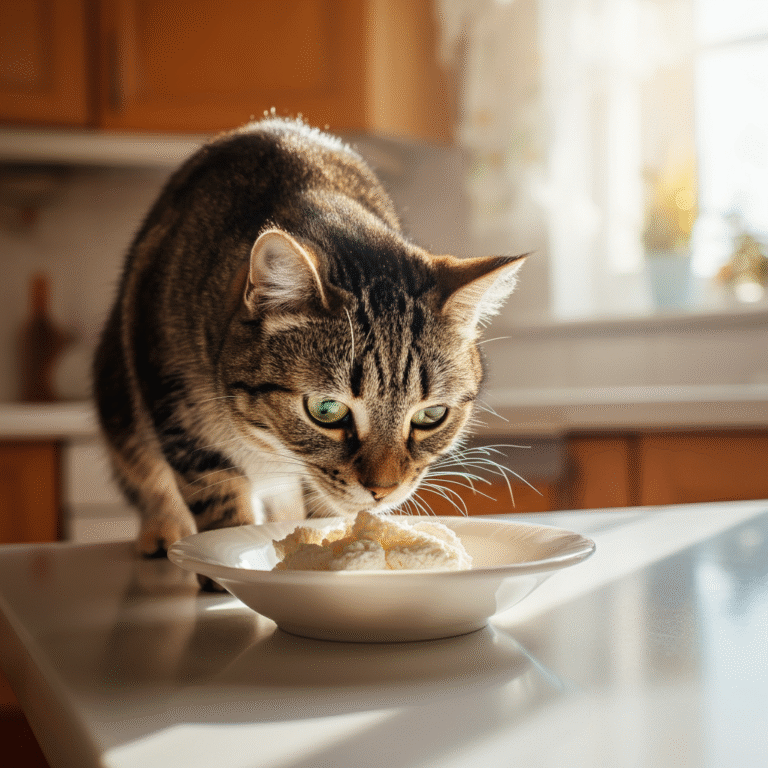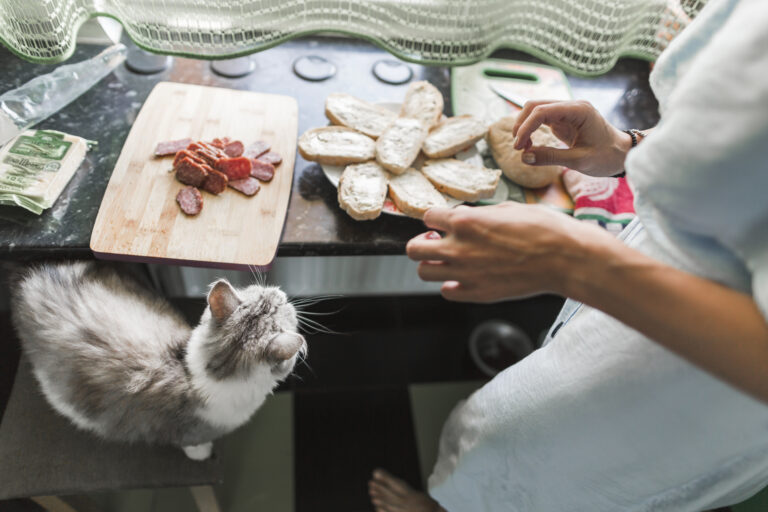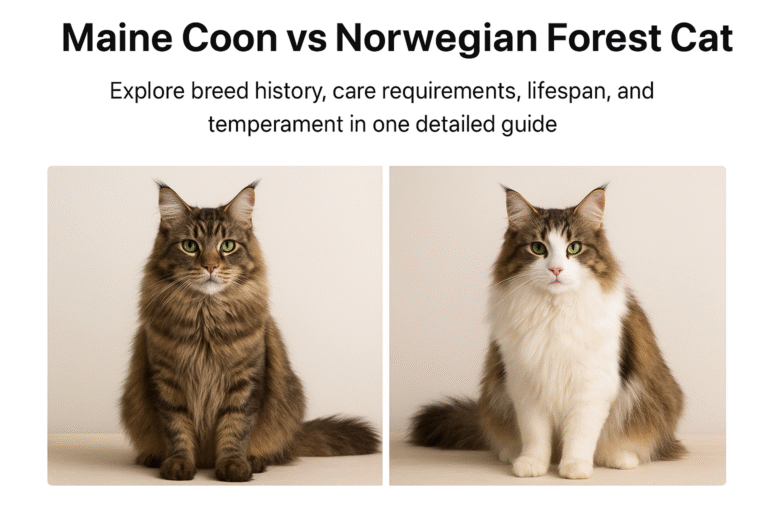Can Cats Eat Cooked Beef? Vet-Reviewed Facts, Safety Tips & FAQs
Can cats eat cooked beef? This is a question many cat owners ask when their furry friend stares longingly at a sizzling steak or freshly cooked ground beef. Since cats are obligate carnivores, their diet must be rich in animal protein. Cooked beef certainly falls into the meat category, but not all cooked beef dishes are safe for felines. From seasonings and fat content to portion size and preparation methods, there are several things you need to consider before offering beef to your cat.
In this in-depth guide, we’ll explore whether cats can safely eat cooked beef, the nutritional benefits and risks, how to prepare it properly, portion guidelines, and common questions pet owners have about beef in a cat’s diet.
Can cats eat cooked beef?
Yes — cats can eat cooked beef safely, but only if it’s prepared correctly. This means plain, fully cooked, and served in moderation. Beef is an excellent source of:
-
Protein – essential for muscle maintenance and growth.
-
Iron – supports oxygen transport in the blood.
-
Vitamin B12 – necessary for healthy nerves and energy.
-
Zinc – boosts immunity and skin health.
However, beef can also become unsafe when:
-
It contains garlic, onion, or spices (toxic to cats).
-
It’s too fatty (causes digestive upset and obesity).
-
It’s served raw without veterinary supervision (risk of bacteria).
Nutritional Benefits of Cooked Beef for Cats

If offered correctly, cooked beef can provide cats with several health benefits:
1. Rich in Protein
Cats thrive on animal protein, and cooked beef provides complete amino acids that support energy and strong muscles.
2. Helps Prevent Anemia
Beef contains heme iron, the type most easily absorbed by the body, which reduces the risk of anemia in cats.
3. Supports Nervous System and Brain
Vitamin B12 in beef is crucial for brain function and maintaining a healthy nervous system.
4. Boosts Overall Health
Zinc and other micronutrients found in beef help support immune system function, wound healing, and coat health.
Potential Risks of Feeding Cats Cooked Beef

Even though cooked beef is beneficial, there are risks if it’s not fed properly:
-
High Fat Content – fatty cuts (like ribeye) may cause obesity or pancreatitis.
-
Excess Sodium & Seasonings – toxic seasonings can damage a cat’s red blood cells.
-
Digestive Issues – sudden introduction of beef may cause vomiting or diarrhea.
-
Unbalanced Diet – beef alone does not provide taurine, calcium, or other essential nutrients needed in cat food.
How to Prepare Cooked Beef for Cats
If you want to share beef with your cat, preparation matters:
-
Cook thoroughly – boiling or baking is best; avoid frying in oil or butter.
-
No seasoning – never add salt, pepper, garlic, or onion.
-
Trim fat – stick to lean cuts such as sirloin or ground beef (90% lean).
-
Cut small pieces – cats have small mouths, so beef should be in bite-sized portions.
-
Serve as a treat – not more than 10% of your cat’s weekly diet.
Raw vs. Cooked Beef: Which Is Better?
Some cat owners debate between raw and cooked beef diets.
-
Raw beef mimics a cat’s natural diet but carries risks of bacteria like salmonella or E. coli.
-
Cooked beef eliminates bacterial risks but loses a few nutrients during cooking.
👉 If you’re considering a raw diet, consult your vet first. For safety, cooked beef is the better option for most household cats.
How Much Cooked Beef Can Cats Eat?
Cats should only have small portions of cooked beef occasionally. A safe serving size is:
-
1–2 small bite-sized pieces once or twice per week.
-
For kittens, keep servings even smaller.
Remember, beef should never replace a complete and balanced cat diet.
Safe Alternatives to Cooked Beef for Cats
If you want variety in your cat’s diet, consider other safe proteins:
-
Plain cooked chicken (skinless, boneless)
-
Cooked turkey
-
Cooked salmon or tuna (no salt or oil)
-
Vet-approved cat treats
-
Freeze-dried raw meat snacks
What to Do If Your Cat Eats Too Much Beef
If your cat sneaks a large portion of beef:
-
Watch for vomiting, diarrhea, or lethargy.
-
Provide fresh water to help flush excess fat or sodium.
-
Call your veterinarian if symptoms persist or if your cat ate seasoned beef containing garlic or onion.
FAQs About Cats and Cooked Beef
1. Can cats eat cooked ground beef?
Yes, lean ground beef is safe if fully cooked and free from spices. Drain excess fat before serving.
2. Can cats eat steak?
Yes, cats can eat steak if it’s plain and lean. Avoid giving them fatty or charred parts.
3. Can cats eat beef liver?
Yes, but in moderation. Beef liver is rich in vitamin A, and too much may lead to vitamin A toxicity.
4. Can kittens eat cooked beef?
Kittens can eat small amounts of cooked beef, but they require kitten-specific food for growth and balanced nutrition.
5. Can cats eat beef broth?
Yes, but only homemade broth without salt, onion, or garlic. Store-bought broths often contain harmful additives.
6. Can cats eat beef jerky?
No, beef jerky is dangerous for cats because it’s high in sodium and often seasoned with spices.
7. Is beef better than chicken for cats?
Both are healthy, but many cats digest chicken more easily. Beef is a good occasional protein source.
8. Can cats eat beef bones?
No, cooked bones are brittle and may splinter, causing choking or internal injuries.
9. Do cats like the taste of beef?
Yes, many cats are attracted to beef’s strong aroma, but liking it doesn’t always mean it’s good for them.
10. Can cats survive on beef alone?
No. Cats need a balanced diet with taurine, calcium, and other nutrients. Beef should only be a supplement, not a full diet.
Final Thoughts
So, can cats eat cooked beef? Yes, they can — but only under the right conditions. Plain, lean, fully cooked beef can be a healthy treat that provides protein, iron, and B vitamins. However, it should never replace a complete cat food diet. Avoid fatty cuts, seasonings, and processed beef products like jerky or deli meats.
Feeding your cat cooked beef occasionally and responsibly can add variety to their diet while keeping them happy and healthy. For long-term health, always consult your vet before introducing new foods.
